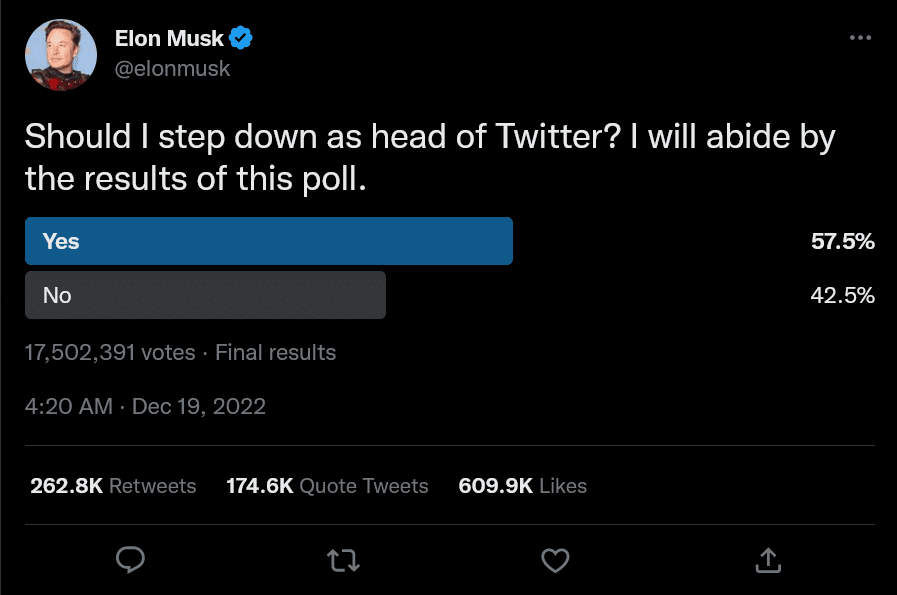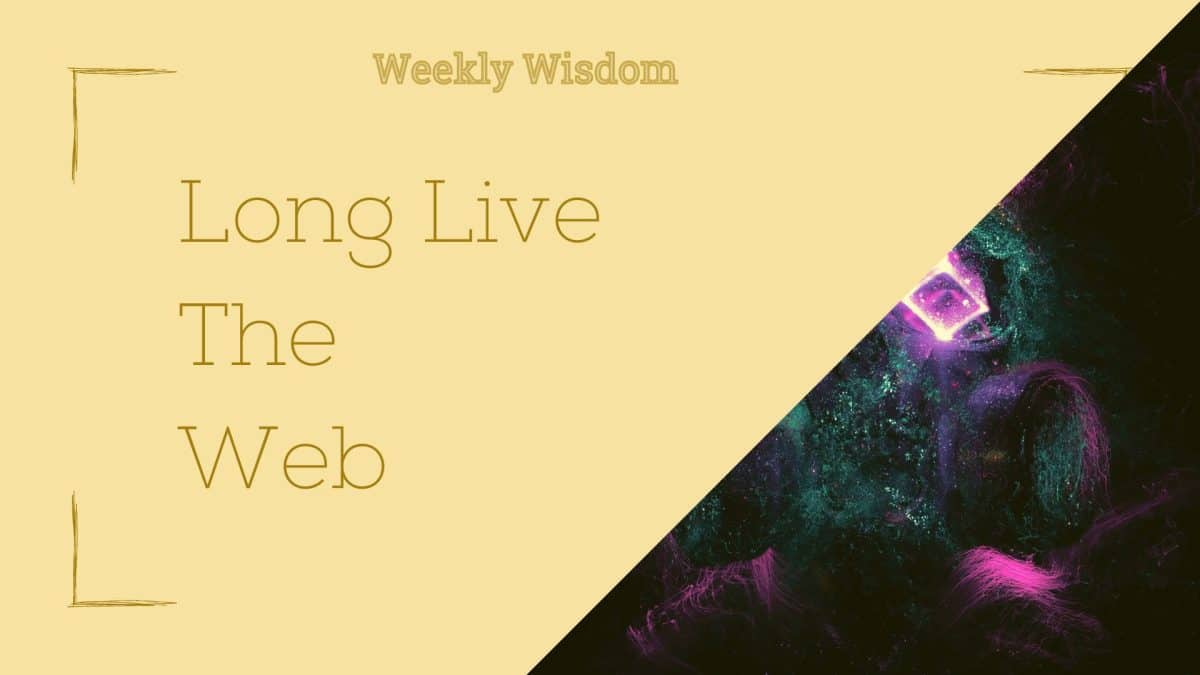Hello Subscribers, New and Old.
Welcome to Weekly Wisdom, your weekly dose of highlights, quotes and notes from my notebook. If you would like to receive this in your inbox, subscribe now. If you want to support, do checkout the links in the Friends of Weekly Wisdom Section.
Yesterday was my 36th Birthday. Officially out of the 18-35 ‘young male’ demographic. Time to cram for that World War 2 exam and wearing sandals on with socks. Messi finally got his World Cup, finally. So that’s good news.
💡Something I learned
There might be hope for the web
Elon Musk’s crashing and burning Twitter has been quite entertaining. However, people cyber-bullying Elon for the past month and reveling in his cringe antics seem to be missing a huge point; twitter is dead. The deal Musk made has saddled the company with debt that it has no hope of paying back.

Even if Papa Elon follows the vox populi and steps down as CEO, no replacement would be able to make the money. It was a stupid deal to begin with, which is why there was so much reluctance on the part of the buyer to go through with it.
However, the demise of twitter might breathe new life into the web. Many are moving to Mastodon “Fediverse”, but many are just switching to their blogs or niche social media sites like letterboxed. This was a the original promise for the web. A place where you can congregate in your preferred spaces, rather than one giant tent where everyone pretended to be normies so as to not offend the advertisers.
If you are a carpenter, you don’t need to be audience captured by a hundred thousand randos. You deserve a thousand weirdos that like the way you make tables. That was the promise of the web. The rise of social networks turned the web into TV and I have hope that the pendulum is swing the other way.
Maybe we would all be able to hangout in places where everyone’s about 70s Italian cinema or Chinese pottery or urban trash management. Without judgement.
📕Something to read
- The Three-Body Problem, Liu Cixin: I am only a quarter of the way through the book and it is fantastic. Liu manages to capture the nature of phsyics for a general audience without dumbing it down.
- Every “chronically online” conversation is the same, Rebecca Jennings: “Chronically Online”, or “Terminally Online” takes are a new way to describe an old phenomenon. 20 years ago it was called “Internet is Serious Business®” or “sr5 bzns” for those who of the l33t spe4k persuasion. Damn I’m old.
Friends of Weekly Wisdom
- Refind: The essence of the web, every morning in your inbox. Tens of thousands of busy people start their day with their personalized digest by Refind. Sign up for free and pick your favorite topics and thought leaders. https://refind.com/?utm_source=newsletter&utm_medium=barter&utm_campaign=FU-SmtfFzzhQJDgFEz5eiw
- The Sample: The Sample lets you try the best newsletters based on your interest. With one-click you can subscribe if you like.
🗣Some Quotes and Notes
Bureaucratic Nightmare
Bureaucratic rot is a disease. This piece looks into how it is impacting university education in the US.
Modern universities—including the UNC System—might be compared, in this sense, to the Renaissance papacy or the 18th-century British parliament: rich and powerful organizations only vaguely aware of their original mission.
— Michael C. Behrent & K. Steven Vincent, Administrators Have Seized the Ivory Tower
I’m slipping under
In my life, the internet has rendered meaningless many an english term. Emo, pretentious, woke, and now ‘toxic’. Once a descriptor for harmful dynamics in relationships, now it means “anything I don’t like”. A great write-up on the issue.
Maybe our brains have been pickled in wellness culture and “self-care” rhetoric, which stress the need to privilege our own well-being above all else. Or maybe we’re just good American capitalists, encouraged by the cult of individualism to think of ourselves as compelling brands, the main characters of cinematic star vehicles, the centers of the universe
…
And yet, I don’t feel hopeless. I have “no obligation,” I’m told, but we all feel obligation, or we wouldn’t be looking so desperately for some relief from that sensation. The very existence of the relationship-advice ecosystem implies an attitude of responsibility and generosity toward our fellow travelers (I don’t know who needs to hear this, but …). That attitude will remain, I think, long after the chilly tone of today’s advice-givers goes out of style
— Kaitlyn Tiffany, That’s It. You’re Dead to Me.
Synthesis
This is a good essay on the philosophical roots of logical mathematics, and in turn computer science. One of the most influential papers in the field Claude Shannon’s “A Symbolic Analysis of Switching and Relay Circuits”. In it he cites an obscure philosopher, George Boole. Shannon was one of the few people, may be the only person at the time, who was informed about electrical circuits and Boole’s work. He synthesized both fields to what is common part of almost every programming language.
It shows how important it is to have a varied input of sources.
Today, Boole’s name is well known to computer scientists (many programming languages have a basic data type called a Boolean), but in 1938 he was rarely read outside of philosophy departments. Shannon himself encountered Boole’s work in an undergraduate philosophy class. “It just happened that no one else was familiar with both fields at the same time,” he commented later.
— Chris Dixon, How Aristotle Created the Computer
Thank you for joining me this week. If you know some who might enjoy this, please forward this email to them. See you next week.
Mudassir Chapra

